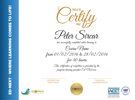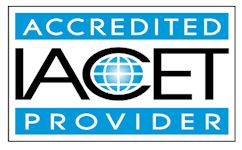Theories of Adult Development
Ed-Next
Summary
Overview
Do adults change their behavioral patterns and ways of thinking as they age, or are personalities and thinking patterns fixed from early childhood? This course will address psychosocial development and cognition in midlife and old age as well as the impact of common stereotypes about aging on empirical research in the field.
Course media
Description
After the completion of this course you should be able to:
- Name the dominant theories of adult education
- Identify the relationship between socialization and aging
- Define the stage theories of adult development
- Define "successful aging"'
- Identify how empirical studies support or challenge common sterotypes about old age
Who is this course for?
Anybody interested in eldercare courses
Requirements
No prior qualification required
Career path
Application of principles learnt in this course
Reviews
Currently there are no reviews for this course. Be the first to leave a review.
Legal information
This course is advertised on reed.co.uk by the Course Provider, whose terms and conditions apply. Purchases are made directly from the Course Provider, and as such, content and materials are supplied by the Course Provider directly. Reed is acting as agent and not reseller in relation to this course. Reed's only responsibility is to facilitate your payment for the course. It is your responsibility to review and agree to the Course Provider's terms and conditions and satisfy yourself as to the suitability of the course you intend to purchase. Reed will not have any responsibility for the content of the course and/or associated materials.



